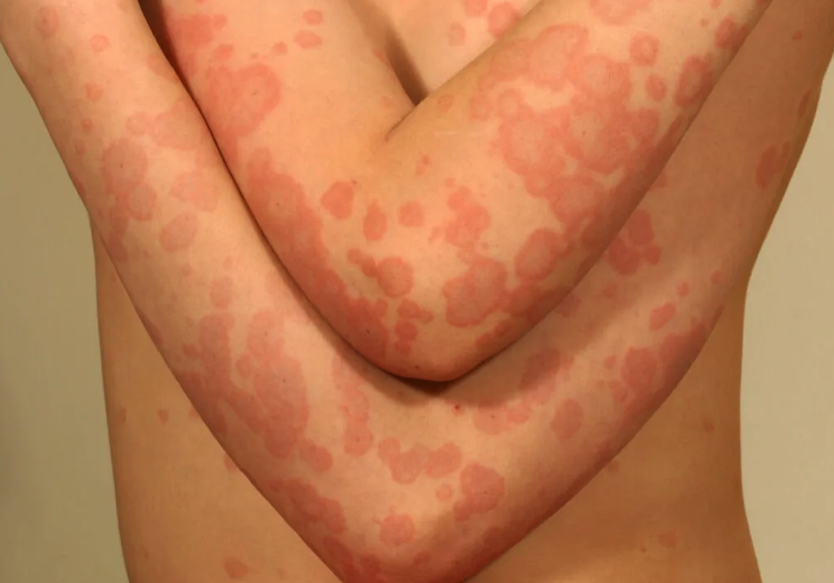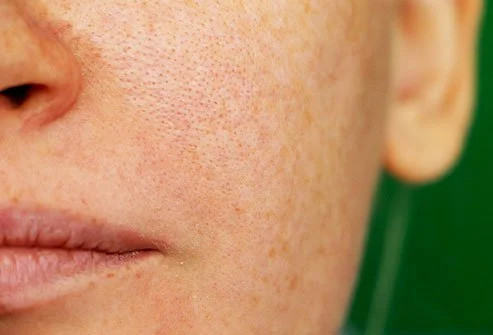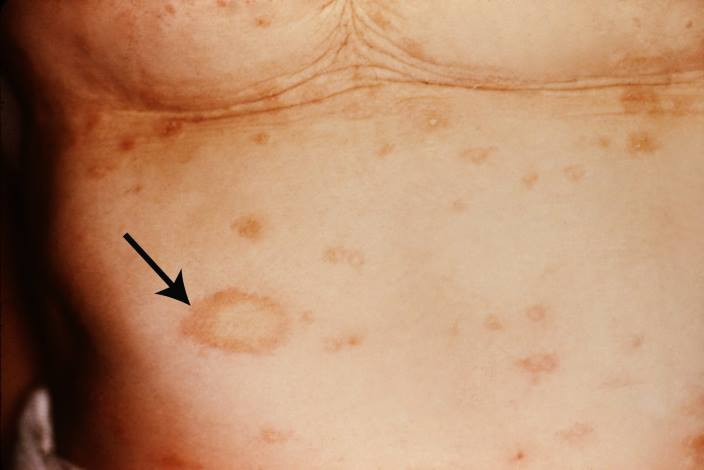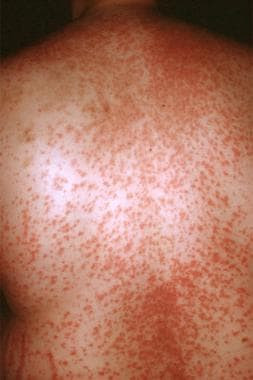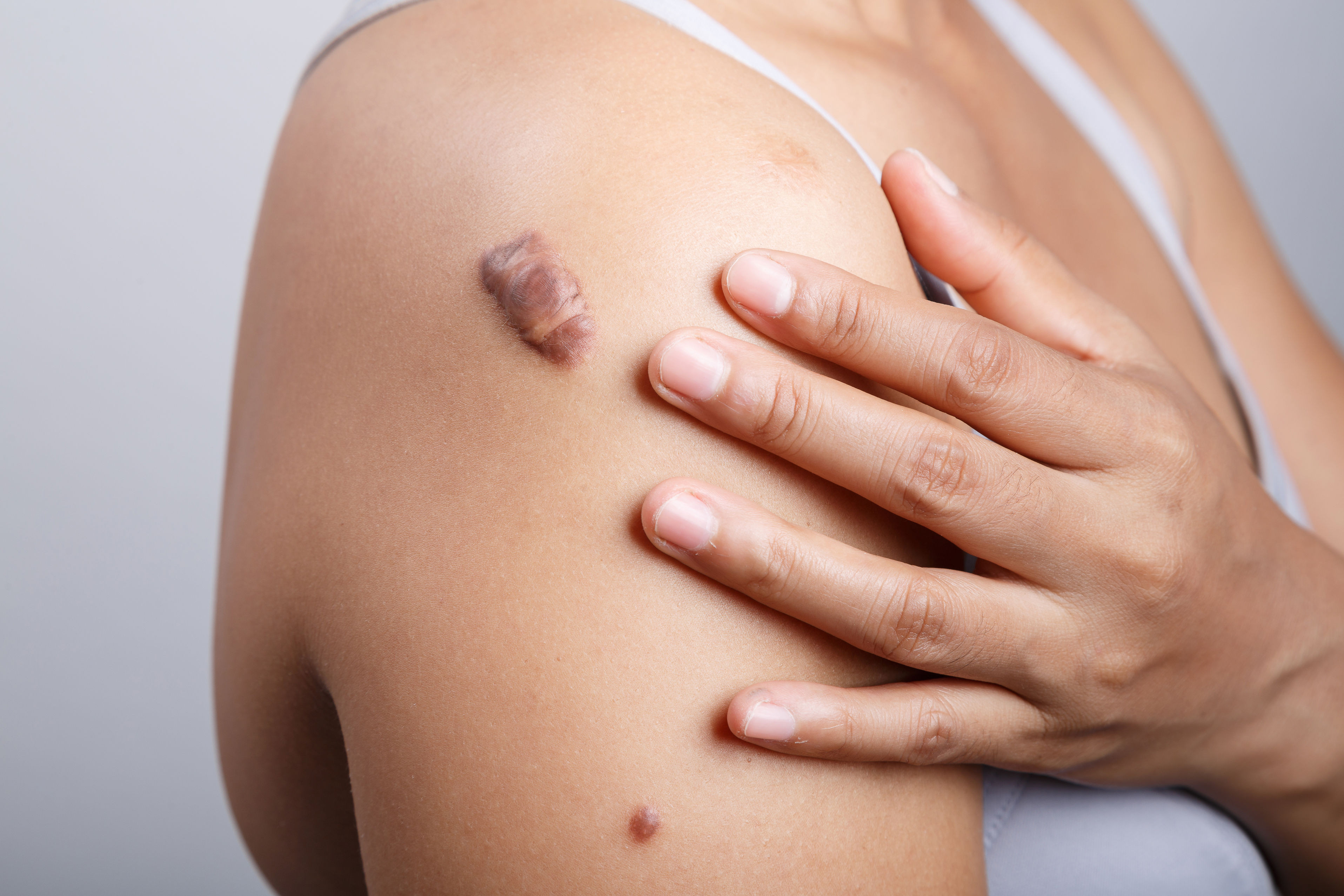Definisi
Urtikaria yang juga dikenal dengan nama hives, kaligata, dan biduran, adalah kondisi gatal-gatal pada kulit dengan ruam kemerahan pada kulit. Ruam ini terlihat bengkak, menebal, dan memiliki batas yang jelas. Nama urtikaria diambil dari serangga yang muncul di Eropa yakni Urtica dioica, karena ruam kulit urtikaria memiliki kemiripan dengan kondisi kulit setelah tergigit serangga tersebut.
Biasanya urtikaria disebabkan oleh berbagai pemicu, seperti suhu udara, kelembapan, debu, makanan, bulu binatang, dan obat-obatan tertentu. Urtikaria dapat dikategorikan menjadi 2 jenis berdasarkan lama durasi penyakit, yakni:
- Urtikaria akut, penyakit akan menghilang dalam waktu beberapa jam hingga <6 minggu.
- Urtikaria kronis dapat muncul hilang-timbul dan bisa berlangsung lebih lama dari 6 minggu.
Setiap orang pasti pernah memiliki keluhan ruam kulit urtikaria setidaknya dua kali sepanjang masa hidupnya. Urtikaria sendiri bukan merupakan penyakit infeksi yang menular antar manusia.
Bila Anda mengalami urtikaria, Anda akan berisiko mengalami syok anafilaktik, suatu reaksi alergi berat yang mengancam nyawa. Anda harus segera mencari bantuan medis bila mengalami hal berikut:
- Area wajah, bibir, lidah dan tenggorokan bengkak.
- Detak jantung meningkat.
- Pusing.
- Sesak napas.
- Ruam kulit di seluruh tubuh
Ada berbagai jenis syok. Anda bisa membaca artikelnya di sini: Syok (Shock) - Definisi, Penyebab dan Faktor Risiko.
Penyebab
Urtikaria bisa terjadi karena adanya proses pelepasan zat histamin yang tinggi di lapisan kulit. Histamin adalah zat yang terlibat dalam respon kekebalan tubuh terhadap paparan zat tertentu, bisa menyebabkan pembuluh darah di kulit melebar sehingga muncul reaksi kulit seperti bengkak dan merah. Namun pada banyak kasus urtikaria, tidak ditemukan penyebab yang jelas.
Anda bisa membaca mengenai kondisi yang bisa menyebabkan munculnya urtikaria di bawah ini.
Alergen (Zat Penyebab Alergi)
Alergen adalah zat yang dapat memicu reaksi alergi dalam tubuh. Ketika reaksi alergi terjadi, tubuh akan mengeluarkan zat protein bernama histamin. Pada beberapa orang, sistem kekebalan tubuh mengenali alergen sebagai zat asing dan berbahaya.
Beberapa zat alergen yang dapat memicu munculnya urtikaria adalah:
- Obat-obatan tertentu seperti antibiotik, antinyeri nonsteroid (aspirin, dll.), beberapa antihipertensi, dll.
- Makanan seperti kacang, telur, makanan laut, atau buah-buahan tertentu (kiwi, pisang, mangga), dll.
- Zat lateks.
- Beberapa tumbuhan.
- Pengawet yang terdapat pada makanan, kosmetik, dan produk lain.
Faktor Lingkungan
Beberapa hal yang normal ditemukan di lingkungan bisa menyebabkan urtikaria pada beberapa orang, seperti:
- Paparan sinar matahari atau sinar ultraviolet yang berlebihan.
- Efek tekanan pada kulit, seperti memakai ikat pinggang atau pakaian yang terlalu ketat.
- Suhu yang terlalu tinggi, contohnya ketika berkeringat atau mandi dengan air yang terlalu panas.
- Berolahraga.
- Kecemasan.
- Kebiasaan menggaruk atau menggores kulit.
Kondisi Medis Lain
Beberapa kondisi medis yang dapat menyebabkan urtikaria adalah:
- Infeksi seperti flu, batuk-pilek (common cold), infeksi saluran kemih, infeksi saluran cerna, radang tenggorokan, dll.
- Gigitan serangga atau hewan.
- Kondisi lain yang menyebabkan peradangan pada pembuluh darah.
- Penyakit autoimun (kondisi ketika sel kekebalan tubuh berbalik menyerang sel tubuh yang sehat)
- Radang sendi rheumatoid arthritis
- Penyakit lupus
- Diabetes tipe 1 karena insulin tidak diproduksi tubuh, dll.
- Hipotiroid autoimun, kondisi ketika kelenjar tiroid di leher tidak memproduksi hormon yang cukup
Faktor Risiko
Faktor yang bisa meningkatkan risiko terjadinya urtikaria adalah:
- Ada anggota keluarga dengan riwayat mengalami urtikaria.
- Usia anak-anak, karena sistem kekebalan tubuh masih belum berkembang sempurna.
- Wanita yang berusia 30-60 tahun.
- Pekerjaan dengan paparan yang tinggi terhadap lateks.
- Sedang dalam pengobatan tertentu.
- Memiliki stres psikologis.
- Tinggal di negara empat musim.
- Memiliki riwayat penyakit autoimun.
Gejala
Gejala yang bisa timbul dari urtikaria antara lain:
- Ruam kulit yang dapat muncul di bagian tubuh manapun dan terlihat bergerombol.
- Ruam kulit bisa berwarna merah, merah muda atau sewarna kulit dan bila ditekan di tengahnya, ruam terlihat memucat.
- Cenderung terasa gatal pada ruam.
- Ukuran bervariasi bisa kecil sampai besar dan terlihat membengkak.
Waktu munculnya ruam kulit akibat urtikaria dapat tergantung dengan penyebabnya. Ruam kulit bisa cepat muncul, dalam kurun waktu 10-60 menit setelah terpapar zat tertentu, atau baru muncul setelah beberapa lama. Urtikaria paling sering muncul pada area kaki, lengan, punggung dan wajah.
Antara lain bila seseorang terkena paparan zat lateks, urtikaria dapat muncul 10 hingga 60 menit setelah terkena alergen dan dapat bertahan hingga 24 jam.
Diagnosis
Penyakit kulit bisa umumnya sangat berkaitan dengan keluhan, riwayat penyakit dan kebiasaan sehari-hari pasien. Dokter bisa bertanya mengenai hal-hal berikut:
- Keluhan-keluhan yang Anda alami.
- Awal munculnya ruam kulit serta bila terjadi perubahan ruam sebelum berkonsultasi ke dokter.
- Apakah Anda pernah mengalami hal yang sama sebelumnya.
- Hal yang Anda lakukan sebelum dan selama terjadinya keluhan dalam 24 jam kemunculan ruam.
- Kemungkinan Anda terpapar dengan zat yang mungkin menyebabkan reaksi alergi.
- Riwayat penyakit Anda dan keluarga.
- Memiliki riwayat alergi tertentu.
- Obat yang sedang Anda konsumsi.
Dokter juga akan memeriksa kondisi Anda, apakah termasuk stabil atau mengalami reaksi alergi berat yang perlu pengobatan segera. Ruam kulit juga akan diperiksa untuk menyingkirkan kemungkinan Anda menderita penyakit lain. Dokter akan melihat dan meraba kulit, mengobservasi warna, tekstur, dan rasa gatal pada kulit.
Biasanya pemeriksaan penunjang tidak diperlukan untuk mendiagnosis urtikaria, kecuali bila dokter melihat adanya tanda dan gejala yang mengarah pada penyakit lain, atau jika pasien memerlukan evaluasi lebih lanjut. Pemeriksaan penunjang yang dapat dilakukan adalah:
- Skin prick test, pemeriksaan alergi pada kulit
- Darah lengkap
- Kimia darah
- Fungsi organ hati
- Biopsi atau pengambilan sampel jaringan kulit, dll.
Tata Laksana
Pengobatan yang paling utama dari urtikaria adalah dengan menghindari paparan hal yang terbukti memicu munculnya reaksi kulit. Dokter juga dapat meresepkan obat golongan antihistamin untuk membantu mengurangi gatal dan peradangan pada kulit.
Bila urtikaria disebabkan oleh kondisi penyakit tertentu, maka dokter akan memberikan pengobatan untuk mengatasi penyakit tersebut. Obat-obatan yang diduga menyebabkan reaksi alergi juga akan dihentikan dan diganti dengan obat lain bila memungkinkan. Pada kondisi di mana pasien mengalami reaksi alergi berat, dokter bisa memberikan obat adrenalin untuk mengatasi kondisi pasien.
Anda juga bisa disarankan untuk menghindari air panas, tidak menggaruk kulit, serta memakai pakaian dengan bahan yang longgar dan tidak menimbulkan alergi.
Komplikasi
Ruam kulit urtikaria bisa disertai dengan kondisi angioedema, yaitu pembengkakan pada lapisan kulit. Selain itu, kondisi urtikaria juga bisa berlangsung lama, yang dapat mengganggu kualitas hidup karena sering kambuh.
Gangguan emosi dan fisik juga menjadi salah satu komplikasi dari urtikaria akibat kondisi gatal yang terus muncul. Dan yang lebih berat, urtikaria dapat berkembang menjadi reaksi alergi berat yang mengancam nyawa dan membutuhkan penanganan segera.
Cari bantuan medis bila Anda mengalami ruam kulit beserta pembengkakan di area mata, lidah dan tenggorokan.
Bila Anda tertarik untuk membaca lebih jauh mengenai angioedema, Anda bisa membacanya di sini: Angioedema - Definisi, Penyebab dan Faktor Risiko.
Pencegahan
Cara mencegah urtikaria yang paling mudah adalah dengan menghindari paparan zat yang berpotensi memicu urtikaria, seperti yang sudah disampaikan sebelumnya.
Kapan Harus ke Dokter?
Segeralah ke dokter bila Anda mengalami ruam kulit yang tak kunjung hilang, atau bila Anda mengalami ruam kulit disertai:
- Nyeri kepala
- Mual
- Muntah
- Sesak napas
- Bengkak pada mata, bibir, lidah atau tenggorokan
Hal itu menjadi penanda dari reaksi anafilaksis dan masuk ke dalam kondisi gawat darurat yang mengancam nyawa sehingga perlu dilakukan penanganan segera di instalasi gawat darurat.
Mau tahu informasi seputar penyakit lainnya? Cek di sini, ya!
- dr Hanifa Rahma
MedicalNewsToday - What causes hives and how to identify it? (2021). Retrieved 8 November 2022, from https://www.medicalnewstoday.com/articles/157260#symptoms.
MSD Manuals - Urticaria. (2021). Retrieved 8 November 2022, from https://www.msdmanuals.com/professional/dermatologic-disorders/approach-to-the-dermatologic-patient/urticaria.
NHS - Urticaria (hives). (2021). Retrieved 8 November 2022, from https://www.nhsinform.scot/illnesses-and-conditions/skin-hair-and-nails/urticaria-hives.
WebMD - Hives (Urticaria). (2021). Retrieved 8 November 2022, from https://www.webmd.com/skin-problems-and-treatments/picture-of-hives-urticaria.


